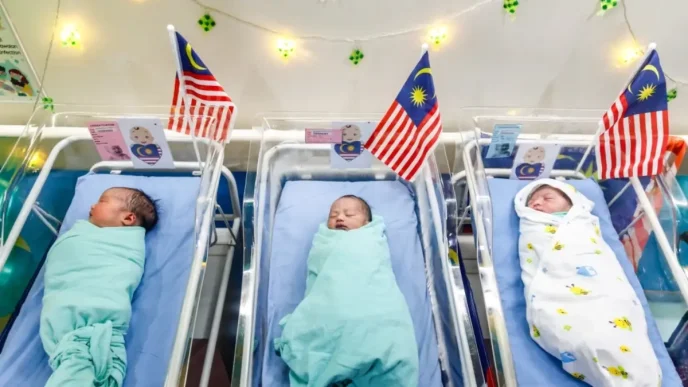In a disturbing incident aboard a Singapore Airlines flight, a 23-year-old Indonesian passenger, Brilliant Angjaya, has been sentenced to three weeks in jail after pleading guilty to one count of sexual exposure. The incident, which occurred on a flight from China to Singapore on January 23, 2025, involved Angjaya exposing himself to a flight attendant and recording her reaction, prompting renewed discussions about passenger conduct and safety protocols in the skies.
Details of the Incident
The court in Singapore heard that Angjaya, who had been studying in China for five months, consumed two glasses of champagne during the flight before the incident unfolded. After waking from a nap, he decided to act on an impulsive and inappropriate urge. At approximately 4:45 a.m., Angjaya returned to his seat in the business class cabin, set his mobile phone to record, and exposed his genitals as a flight attendant approached with an in-flight meal.
The attendant, visibly shocked, averted her gaze, quickly set down the meal on a foldable table, and left the area. She later noticed the phone’s camera pointed at her and reported the incident to her supervisor. When confronted, Angjaya initially denied recording the event but eventually surrendered his phone, which contained footage of the incident, including images of the victim. Police were alerted before the flight landed at 6:45 a.m., and Angjaya was arrested upon arrival in Singapore.
Due to a gag order issued by the court to protect the victim’s identity, further details about the flight attendant and specific flight information have been withheld.
Court Proceedings and Sentencing
On March 24, 2025, Angjaya appeared before District Judge Paul Quan, who described the act as “inexplicable” and “inexcusable.” The judge emphasized the heightened distress caused to the victim, particularly in the confined and personal setting of a business class cabin, where interactions between passengers and crew are often more direct. “The defense has characterized the offense as a highly inappropriate prank. I hold a different view. It was perverse enough for [Angjaya] to even contemplate how someone might react to his indecent exposure” Judge Quan remarked during sentencing.
Deputy Public Prosecutor Ng Jun Kai argued for a jail term of four to six weeks, citing aggravating factors such as Angjaya’s intoxication, the location of the crime aboard an aircraft, and the targeting of a public transport worker. The prosecutor also pointed to Angjaya’s initial denial as evidence of a lack of immediate remorse, stating: “Had he been truly remorseful, he would not have lied to the victim’s supervisor when asked if he was recording. He would have come clean from the onset.”
Angjaya’s lawyer, Navin Thevar, presented a defense highlighting his client’s troubled emotional state at the time of the incident. According to the lawyer, Angjaya had been struggling with the uncertainty of leaving China and parting from friends he had made during his studies. The champagne, Mr. Thevar argued, was consumed in an attempt to sleep on the flight. After the incident, Angjaya surrendered his phone, apologized to the cabin crew, and later wrote a letter of apology to the victim, which was read in court.
In the letter, Angjaya expressed regret, stating: “What I did was very stupid. But I believe you deserve an explanation why I did what I did.” He acknowledged that his reasons did not justify his actions and added: “You do not deserve the distress and complications I caused you… I hope it gives you at least some comfort knowing that I will face justice for my action.”
While Judge Quan acknowledged Angjaya’s genuine remorse, he ultimately sentenced him to three weeks in jail, a term shorter than what the prosecution had sought but reflective of the seriousness of the offense.
Broader Implications for Air Travel
This incident raises significant questions about passenger behavior and the safety of airline staff, particularly in premium cabins where personal interactions are more frequent. Flight attendants, as frontline workers in the aviation industry, often face challenging situations with limited means of escape or immediate support while in the air. The psychological impact of such encounters can be profound, and this case underscores the need for stricter enforcement of conduct policies on flights.
Singapore Airlines, known for its high standards of service, has not issued a public statement on this specific incident, likely due to the ongoing legal sensitivities and the court’s gag order. However, the airline’s policies on passenger conduct are stringent, and crew members are trained to handle disruptive behavior, including alerting authorities when necessary, as was done in this case.
The incident also highlights the role of alcohol in exacerbating inappropriate behavior on flights. While intoxication is not a legal defense, it often plays a contributing factor in such cases. Airlines worldwide have grappled with how to balance the provision of complimentary alcoholic beverages, especially in business and first-class cabins, with the potential risks they pose to passenger and crew safety.
Public Reaction and Legal Context
Public sentiment, as gauged from discussions on social media platforms, reflects a mix of outrage and concern for the victim. Many have called for harsher penalties for such offenses committed in confined spaces like aircraft, where victims have little recourse during the incident. Others have pointed to the need for better mental health support for passengers who may be dealing with emotional distress, though few excuse Angjaya’s actions on these grounds.
In Singapore, laws regarding sexual exposure and harassment are strictly enforced, reflecting the city-state’s emphasis on public order and safety. The penalty for sexual exposure can vary depending on the circumstances, but the context of this incident—occurring on a plane and involving a recording—added to the severity of the case in the eyes of the court. Legal experts note that such cases, while rare, serve as a reminder of the importance of protecting vulnerable workers in the service industry, including flight attendants.
Looking Ahead
As air travel continues to recover and expand in the post-pandemic era, incidents like this one prompt a reevaluation of how airlines and authorities can better safeguard both passengers and crew. Whether through enhanced training, stricter alcohol policies, or more robust legal deterrents, the aviation industry faces ongoing challenges in maintaining a safe and respectful environment at 30,000 feet. For now, the sentencing of Brilliant Angjaya stands as a cautionary tale of the consequences of crossing boundaries in the skies.














